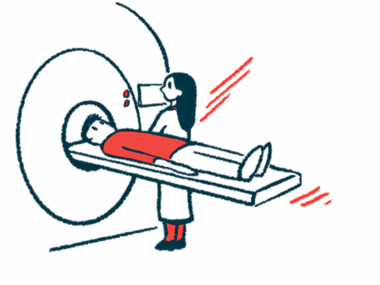MS News That Caught My Eye Last Week: Quality of Life, Virtual Reality Rehab, Aubagio and Brain Atrophy, Cancer Risk
Written by |

Review Study Examines Factors That Affect MS Patients’ Quality of Life
What affects the qualify of your life as someone who lives with MS? Fatigue is at the top of my list, followed by difficulty walking. Now, COVID-19 plus gray, winter weather have added a bit of depression. So, I’m not surprised, and I doubt you’ll be, when you read the top factors listed in this study. Are these the same for you?
Disability, fatigue, depression, cognitive impairment, and unemployment are primary risk factors for a poor quality of life in people with multiple sclerosis (MS), according to a recent review study.
Conversely, higher self-esteem, self-efficacy, resilience, and social support were identified as protective factors for quality of life (QoL).
Click here to read the full story.
***
Virtual Reality-based Rehabilitation May Improve Upper Limb Function in MS Patients, Review Finds
This is an interesting concept, but this study review is pretty limited. Only 10 studies were reviewed, and only six of those were random, controlled clinical trials. Worse, this article reports that the specific actions, exercises, or games used were generally poorly described in each study. A therapy that’s fun and easy to do seems to be a win-win, but we need to know a lot more specifics before it’s ready for prime time.
Motor rehabilitation using virtual reality (VR) may improve hand and arm function in people with multiple sclerosis (MS), according to a review study.
Evidence of its beneficial effect is, however, still preliminary, as most analyzed studies included small patient groups and some failed to show statistically significant improvements in upper limb function, the researchers noted.
Click here to read the full story.
***
Aubagio Slows Grey Matter, Whole Brain Atrophy in CIS, Study Finds
Here’s more evidence that early treatment, — in this case, even before a confirmed MS diagnose is made — slows the loss of brain matter. That has to be a good thing. But this study was designed and financed, and its data was analyzed, by Aubagio’s manufacturer. I’d like to see a similar study done using some of the many other disease-modifying therapies available to people with MS.
Studied for the first time, Aubagio (teriflunomide) slowed the loss of cortical grey matter and whole-brain volume in people with clinically isolated syndrome (CIS) during two years of therapy, a study found. The treatment was especially effective in those without brain lesions before treatment.
Further, the study showed that early cortical and whole-brain atrophy is associated with CIS becoming definite multiple sclerosis (MS) in the following years.
Click here to read the full story.
***
MS Patients at Higher Risk of Bladder Cancer, But Not Breast, Colorectal Cancer
Well, yes, but …
This study reports that people with MS have a 72% greater chance of developing bladder cancer than their healthy counterparts. Researchers speculate that this may be due to people with MS being prone to urinary infections and their use of catheters.
Here’s the “but”: This study didn’t take into account environmental factors such as smoking, diet, or exercise. It also didn’t factor use of a disease-modifying therapy. Finally, the incidence of bladder cancer was only 25 new cases per 100,000 person-years. So, in perspective, I’m not as concerned as I was when I read the headline.
People with multiple sclerosis (MS) are at a higher risk of developing and dying from bladder cancer than people without the neurodegenerative disorder, according to a Canadian population-based study.
However, no differences were found between MS patients and unaffected individuals in terms of their risk of breast and colorectal cancers — two of the three cancer types most prevalent in this patient population.
Click here to read the full story.
***
Note: Multiple Sclerosis News Today is strictly a news and information website about the disease. It does not provide medical advice, diagnosis, or treatment. This content is not intended to be a substitute for professional medical advice, diagnosis, or treatment. Always seek the advice of your physician or other qualified health provider with any questions you may have regarding a medical condition. Never disregard professional medical advice or delay in seeking it because of something you have read on this website. The opinions expressed in this column are not those of Multiple Sclerosis News Today or its parent company, Bionews, and are intended to spark discussion about issues pertaining to multiple sclerosis.






Reg Bavis
I have MS since 95 and recently have been having bowel movement problems and have been experimenting with different bowel movement items and to date have not found a produce that works can I get your comments.
Ed Tobias
Unfortunately, it's a fairly common MS problem Reg. I've had this problem for years. I've found that staying well hydrated and exercising both help. I've resisted things like stool softeners. The few times I've tried that it didn't help. Maybe others will jump in with suggestions.
Ed
Kathryn
I too was diagnosed in 1995 and have Bowel difficulty. I went through Bowel therapy where I was instructed to perform digital stimulation daily, take mirilax, and stol softener's daily. I do not enjoy doing these things at all but they help me to go anyway. Another thing that helps is the herbal tea called Smooth Move and a physical therapist gave me a recipe to help me go daily which is 1 cup applesauce, 1 cup oat bran and 3/4 cup pru e juice. Mix all together and divide into an ice cunbe tray. Freeze And eat 2 cubes nightly. It doesn't taste too bad if it worried you. Good luck!
Lynn Becker
Hi Ed,
I am a social worker working with a client, a teenager recently diagnosed with MS... where are resources for her to learn more about peer supports, educational scholarship opportunities, and career mentors?
Thanks
Ed Tobias
Hi Lynn,
I wrote two columns, a couple of years ago, about young people with MS:
http://multiplesclerosisnewstoday.com/2018/03/06/ms-can-be-kids-disease-too-pediatric-resources-oscar-monkey/
http://multiplesclerosisnewstoday.com/2018/03/13/ms-can-be-kids-disease-too-part-2-pediatric/
It's also possible that the local chapter of the National MS Society, assuming you're in the US, might be of help.
Finally, a shameless plug for a little book that I just wrote. It's aimed at all people newly diagnosed with MS. It's available as an ebook on Apple Books and as a paperbook on Amazon.
I hope this helps,
Ed